Are you navigating the complexities of contract management? Understanding the nuances of contract effectiveness notices can help streamline your processes and ensure everything runs smoothly. In this article, we'll discuss the essential elements to include in your notice, how to communicate clearly with all parties involved, and best practices to avoid common pitfalls. So, grab a cup of coffee and get ready to dive deeper into this important topic!
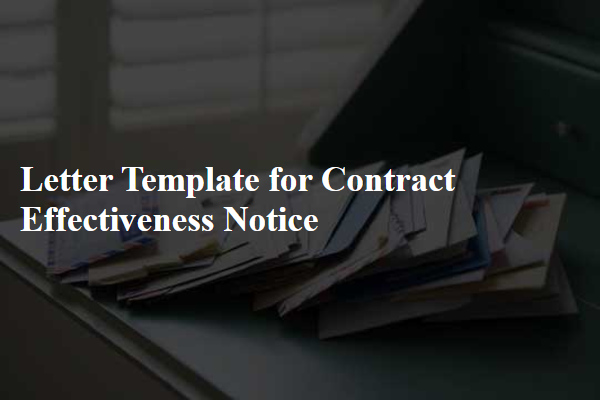
Clear Identification of Parties
To ensure clarity in any contract, it is essential to provide a clear identification of parties involved, including full legal names, addresses, and relevant identifiers. For example, in a rental agreement, the landlord (John Smith, residing at 123 Elm Street, Springfield, IL) and tenant (Sarah Johnson, currently at 456 Oak Avenue, Springfield, IL) should be explicitly mentioned. This identification not only facilitates accurate communication but also strengthens the enforceability of the contract, ensuring that both parties understand their obligations and rights. Additionally, including unique identifiers like social security numbers or business registration numbers, when applicable, can further secure the agreement's legitimacy.
Effective Date Specification
In contractual agreements, the effective date serves as a crucial milestone signifying when obligations and rights come into force. By specifying an effective date, parties ensure that terms of engagement, such as durations of commitments or conditions for performance, start at a mutually agreed moment. For instance, a contract signed on January 15th may have an effective date of February 1st, allowing for preparatory steps. Clear identification of the effective date mitigates disputes regarding the commencement of duties and fosters accountability among involved parties. It is essential to document this date in a visible section of the agreement, outlining any preconditions that might influence the timeline.
Reference to Original Contract
A contract effectiveness notice serves to confirm the commencement of a legal agreement between two parties, often referring to an original contract for context. This notice typically includes the title of the original contract, the signing date, and the parties involved, ensuring clarity regarding the terms and conditions. It may also specify the duration of the contract, payment obligations, and any milestones or deliverables. Including specific references to the governing law or jurisdiction can enhance the legal robustness of the notice. Additionally, providing contact information for any queries reinforces communication between the parties as they proceed under this agreement.
Signature Block with Titles
A contract effectiveness notice serves as an official confirmation of the activation of a legal agreement between parties involved. This document typically includes the signature block, which features the full names and titles of individuals authorized to execute the contract on behalf of their respective organizations. For example, in a partnership agreement, one might find the signature of "John Smith, Chief Executive Officer, ABC Corporation" alongside "Jane Doe, Managing Director, XYZ LLC." The signature block not only signifies consent but also delineates the parties' roles, ensuring accountability. Inclusion of date and location beneath the signatures offers a context to the execution of the contract, solidifying its legal standing.
Contact Information for Further Inquiries
Contact information serves as a vital resource for further inquiries regarding contract effectiveness. Essential details include the name of the designated representative from the legal department, such as Aimee Thompson, whose expertise in contract law facilitates clear understanding. The direct phone number, for example, (555) 123-4567, allows immediate communication, while the email address, aimee.thompson@company.com, provides an alternative for documentation and questions. Additionally, the physical address of the company's headquarters, located at 123 Business Lane, Suite 100, New York, NY 10001, ensures that any formal correspondence can be sent directly. Accessibility to this information enhances transparency and streamlines the inquiry process for all parties involved in the contractual agreement.

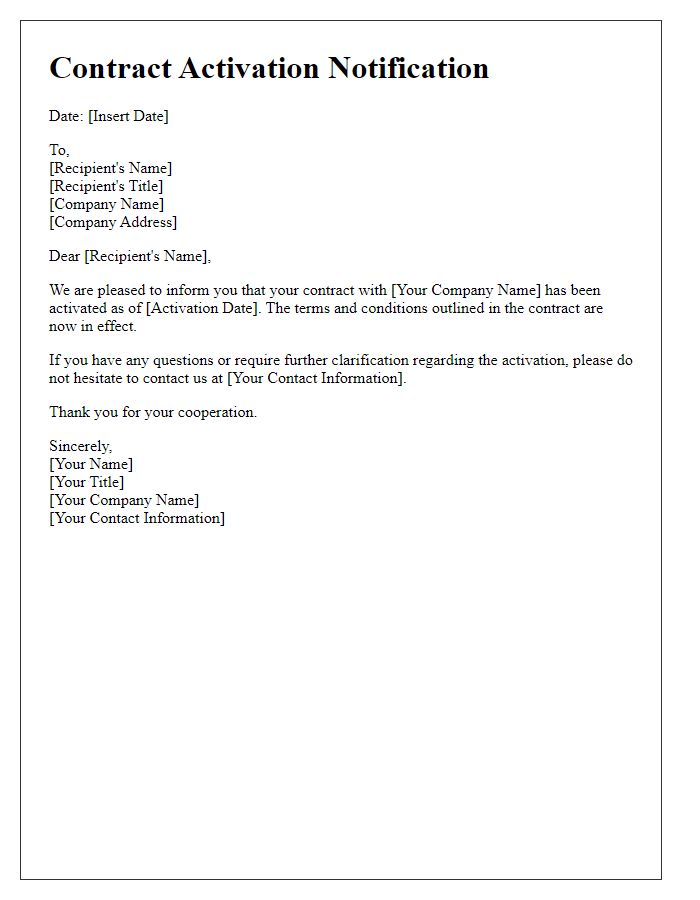
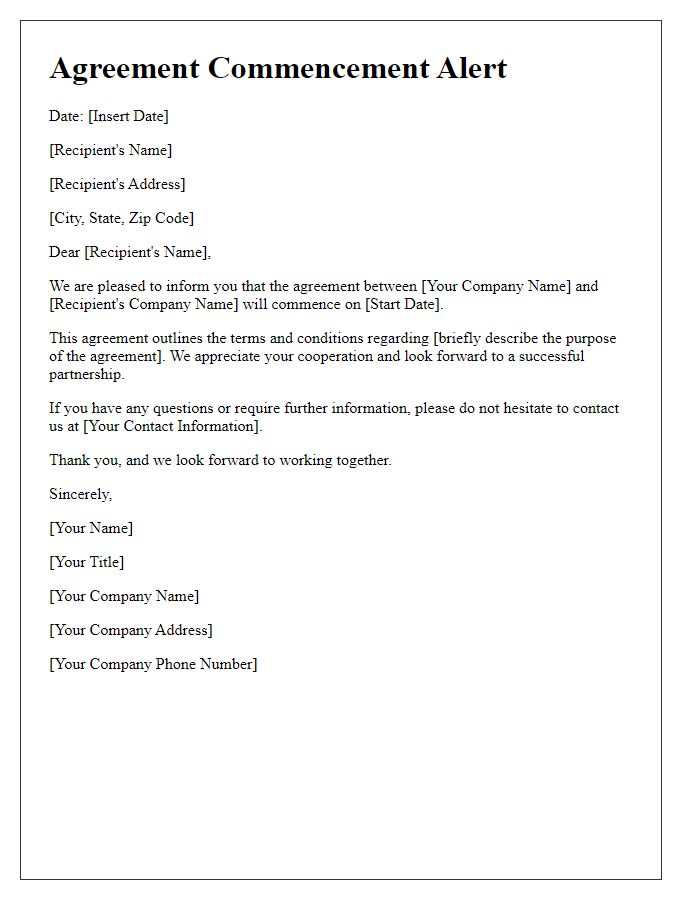
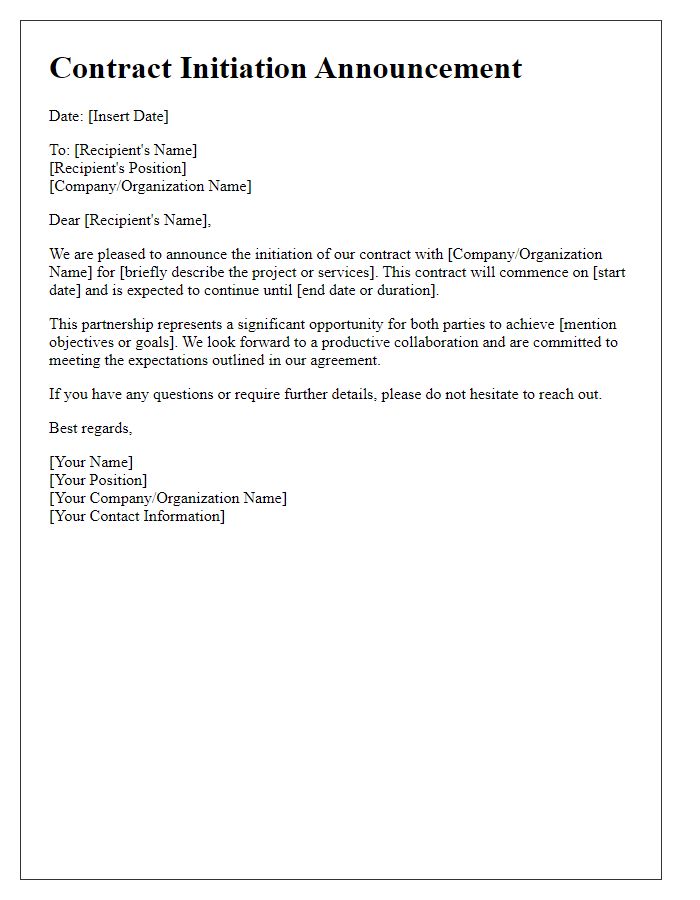
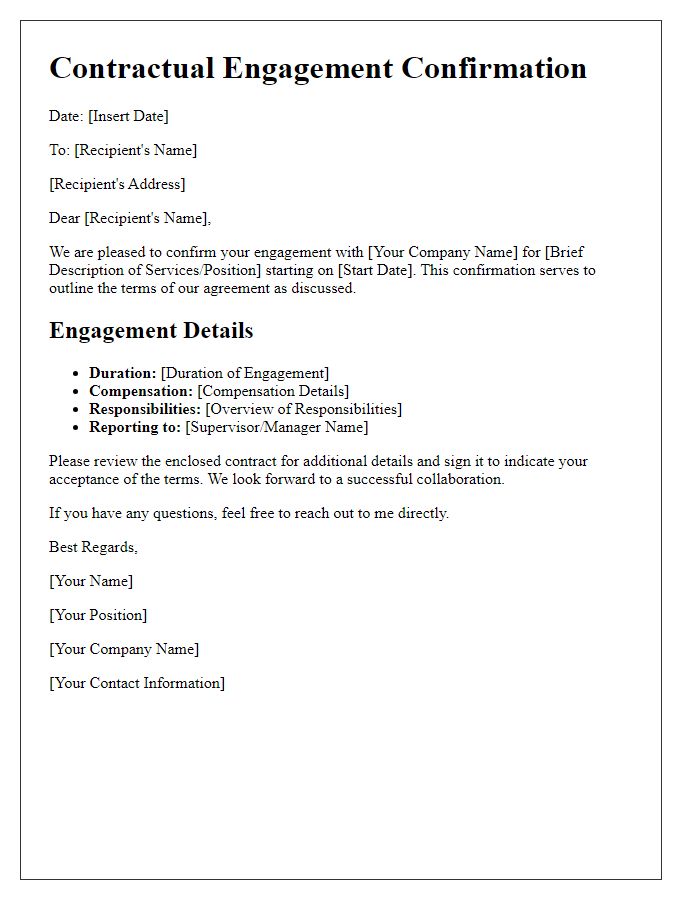
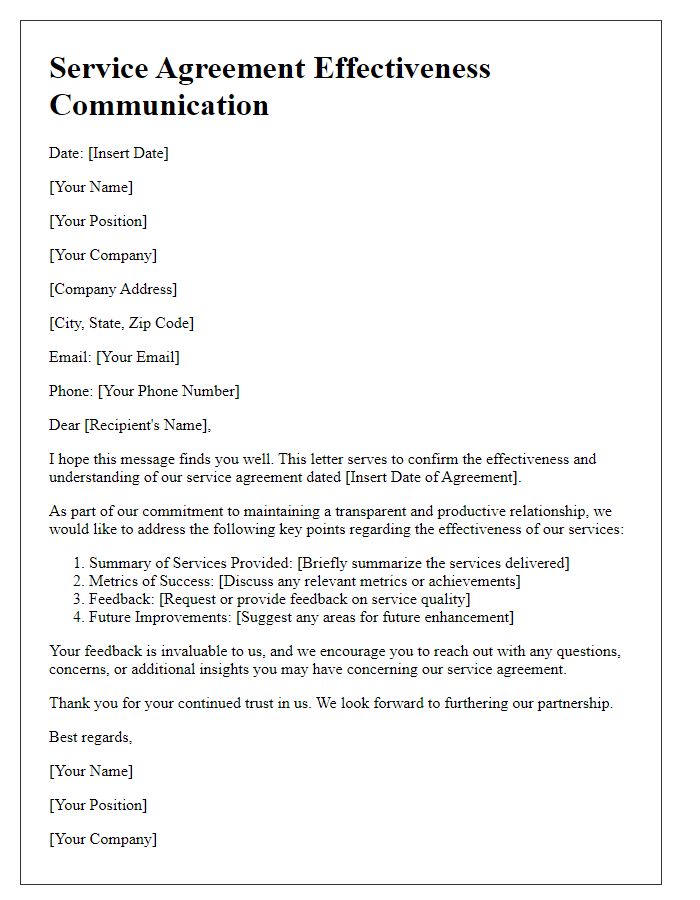
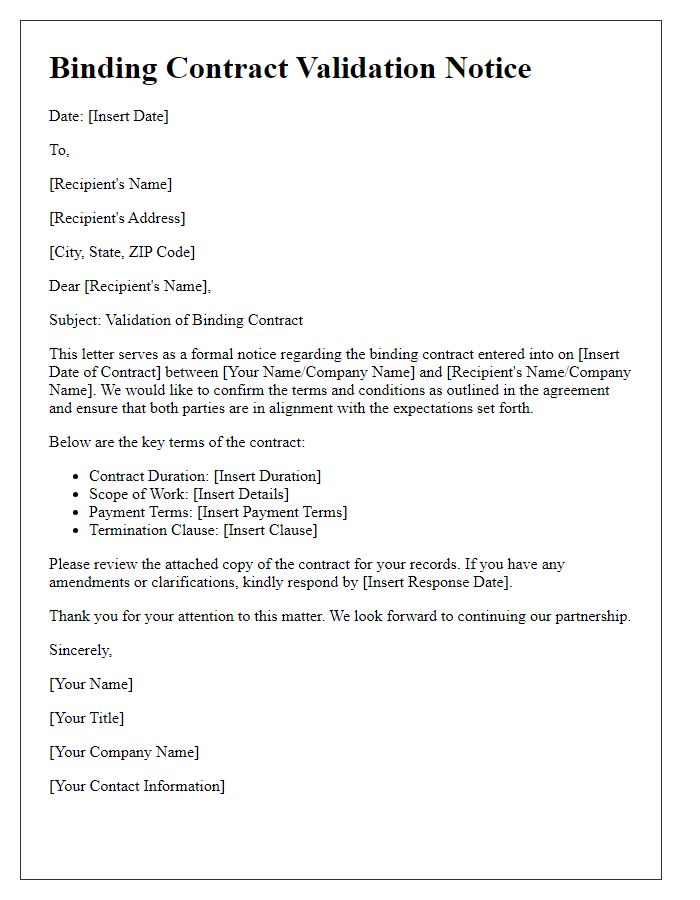
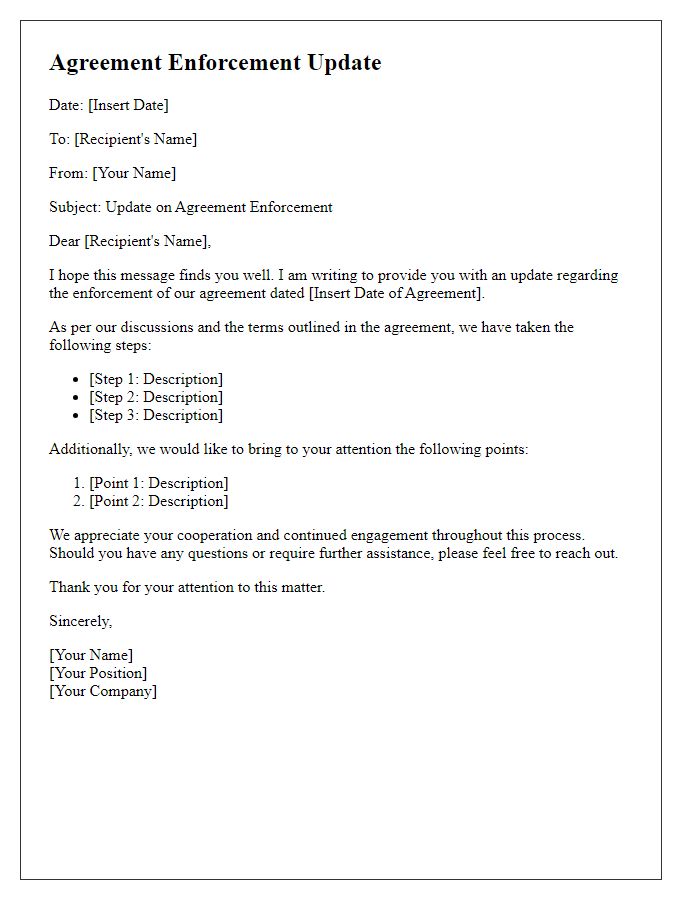
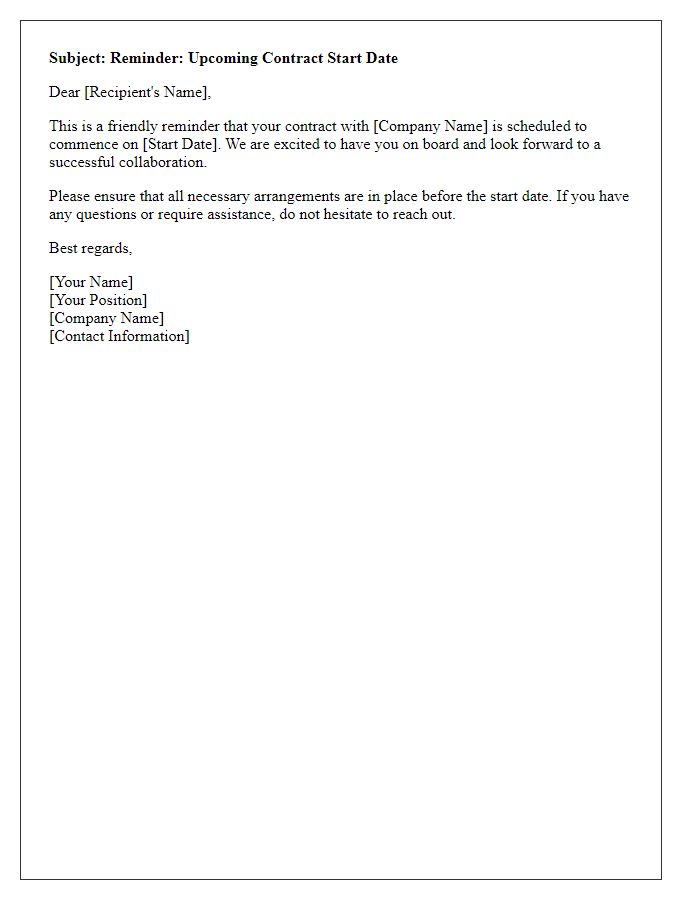
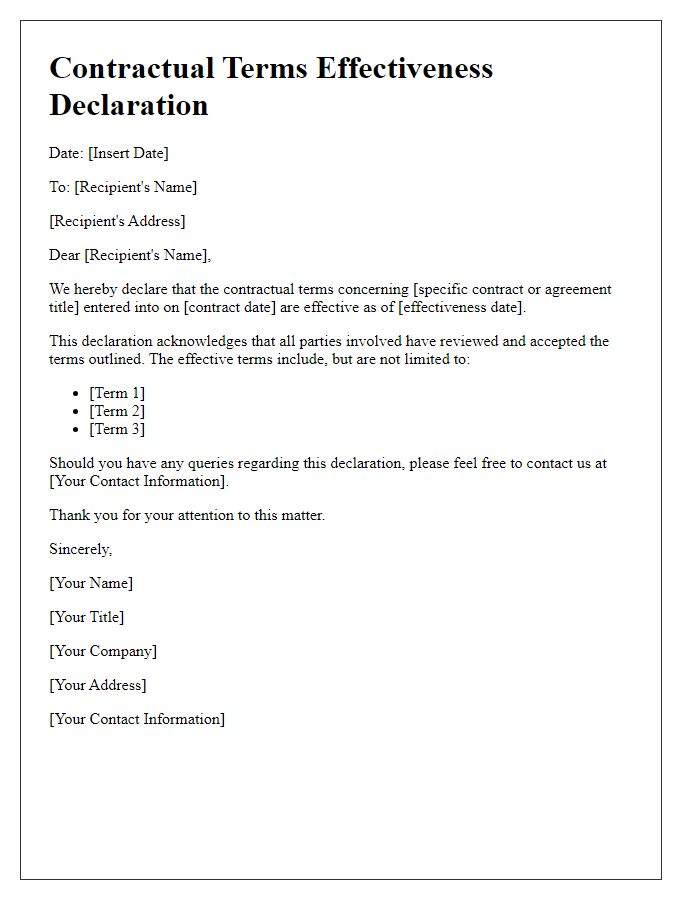
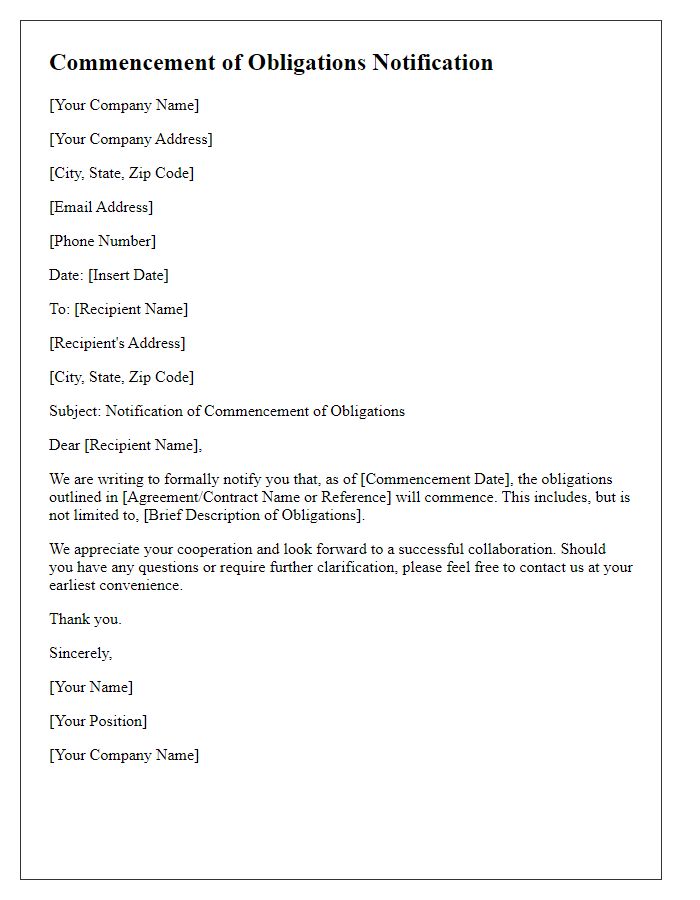

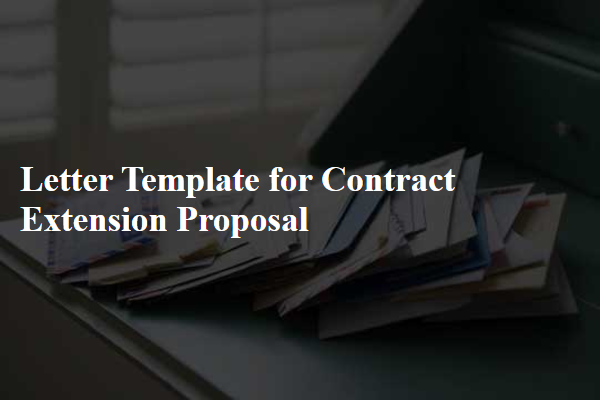
Comments